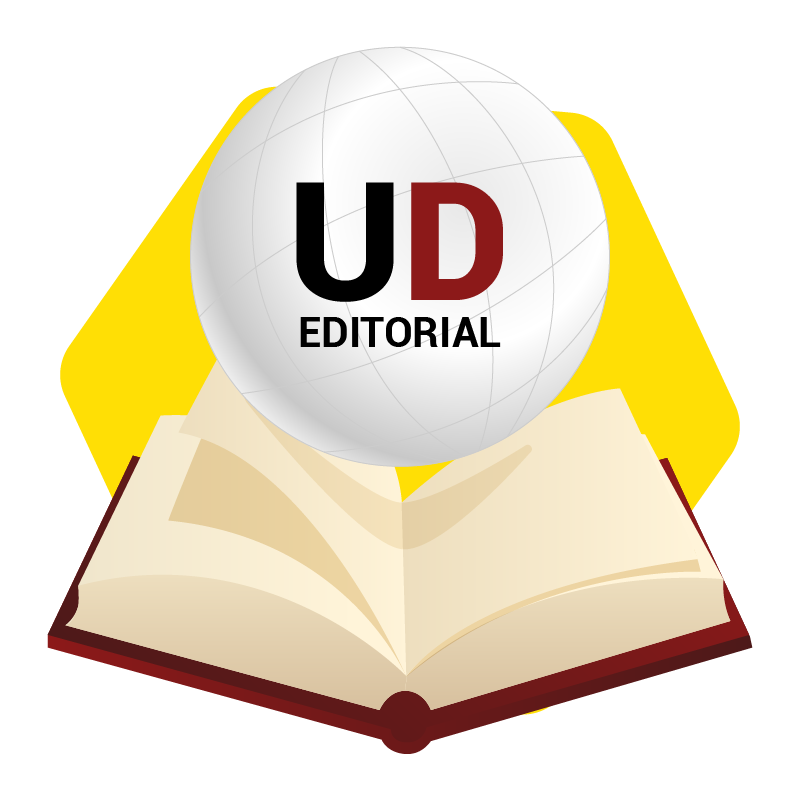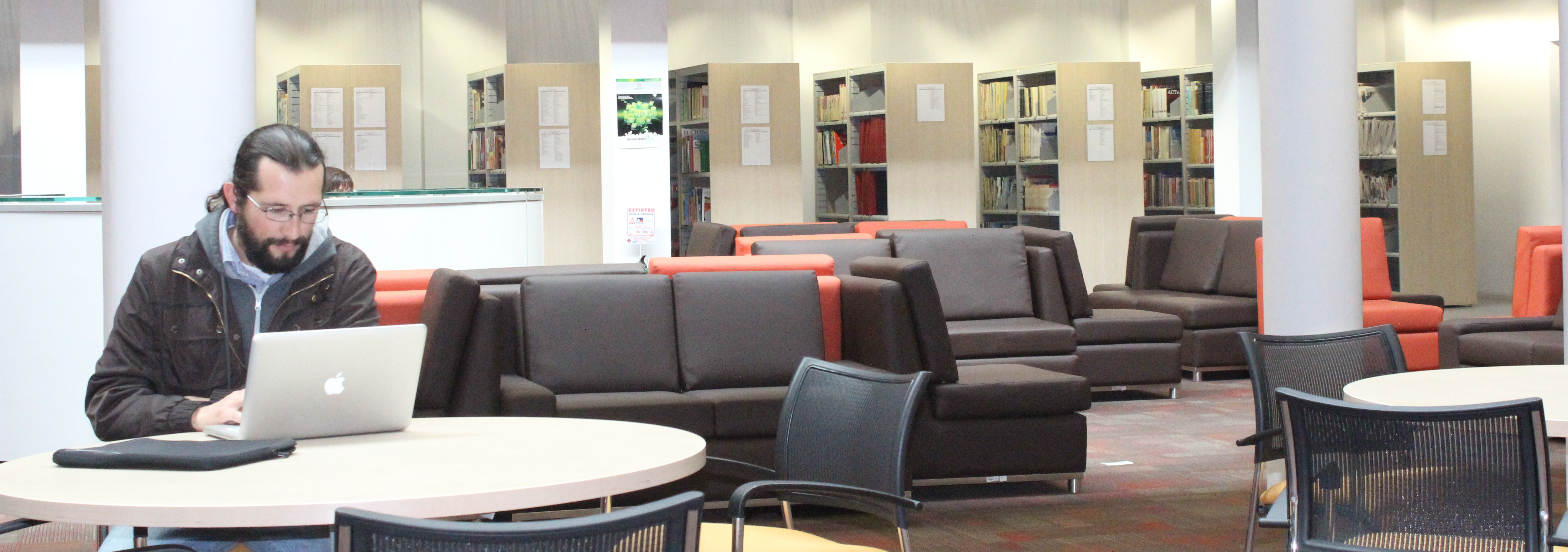
Repositorio Institucional
Universidad Distrital - RIUD
El Repositorio Institucional de la Universidad Francisco José de Caldas RIUD es una herramienta donde se depositan los objetos digitales que corresponden a la producción intelectual de la Universidad para proteger, preservar, y difundir.

Colecciones Especiales y Patrimoniales
Ver

Producción Editorial
Ver

Recursos Educativos Abiertos
Ver

Tesis y Disertaciones - Maestría y Doctorado
Ver

Trabajos de Pregrado y Especializaciones
Ver

Colecciones Científicas
Ver
Envíos recientes
Revista de la Mañana. La Universidad Distrital Francisco José de Caldas proyecta el reinicio de actividades académicas para el 21 de enero de 2019
(Universidad Distrital Francisco José de Caldas. Emisora LAUD 90.4 FM) Castrillón Cardona, William Fernando; Universidad Distrital Francisco José de Caldas
The Academic Vicerector of the District University, Professor William Fernando Castrillón, announced that the restart of academic activities to conclude the 2018-03 period is projected for January 21, 2019. This tentative date, which has been preliminarily approved by the Academic Council, aims to provide sufficient time for the re-hiring of part-time professors (hora cátedra) and for administrative preparations following the vacation period for permanent faculty, who return on January 8th. The goal is to finish the pending period by the third week of February 2019 at the latest, in order to start the 2019-01 period around March 4th and manage to level the two full academic periods throughout the rest of the year.
The Vice-Rector highlighted the historic achievement of the national agreements between the student movement and the government, which allocated more than $4.5 trillion additional pesos to public higher education. Although the District University is not the biggest beneficiary of the national resources, the agreement did have a positive influence in securing a budget addition of $15 billion pesos from the Bogotá Council.
Finally, Professor Castrillón indicated the Academic Council's willingness to dialogue with the students and movement leaders to guarantee the peaceful resumption of classes, which requires the unblocking of facilities and a positive attitude from the community
1810 - 20 de julio de 1900
Boletín Militar; Universidad Distrital Francisco José de Caldas. Facultad de Ciencias y Educación. Centro de Documentación de Ciencias Sociales.
The image contains a news item from the Military Bulletin commemorating July 20, 1900, which recounts episodes from the civil war between Cundinamarca and Tunja in 1812. It narrates the movements of the Army of the North from Santafé to Zipaquirá, highlighting the logistics, the hospitality of locals such as Lorenzo Rincón and Pedro Bujanda, and the arrival of Antonio Nariño. It also mentions his ultimatum to Congress regarding the weapons of Baraya, and a military action led by Tadeo Vergara in Hatoviejo, where weapons were recovered after surprising an enemy detachment. This news item was published in the Military Bulletin on July 21, 1900.
La Bagatela tumba presidente
El Tiempo; Universidad Distrital Francisco José de Caldas. Facultad de Ciencias y Educación. Centro de Documentación de Ciencias Sociales.
The image contains a news article about how La Bagatela, a newspaper edited by Nariño, became a political weapon that decisively influenced the downfall of a president during the 1811 civil war, in the context of the ideological clashes between federalists and centralists. The article was published in El Tiempo on September 28, 1986.
Decreto número ... de 1900
Boletín Militar; Universidad Distrital Francisco José de Caldas. Facultad de Ciencias y Educación. Centro de Documentación de Ciencias Sociales.
The image contains a news item about the decree transferring to the Director General of the National Police the exclusive authority to issue safe-conduct passes and passports to civilians and foreigners, both within and outside the department. The fees collected for these documents will be allocated to the Departmental Treasury. News item published in the Military Bulletin on July 21, 1900.
Decreto número ... de 1900
Diario Oficial; Universidad Distrital Francisco José de Caldas. Facultad de Ciencias y Educación. Centro de Documentación de Ciencias Sociales.
The image contains a news item about the decree increasing the number of National Police officers to 1,500 men, in response to the war situation the country was experiencing. The measure aimed to reinforce public order and was issued by Vice President José Manuel Marroquín and Minister of War José Domingo Ospina. The news item was published in the Official Gazette on January 21, 1901.












